
Discover more from Can't Get Much Higher
Where Are We Going and Where Have We Been? Music in 2023 & Beyond
Let's take a look at the most important musical trends of 2023 and speculate on the biggest trends in the coming years.
From backlash against streaming payment models to global shifts in tastes to the beginnings of AI-generated songs, a lot has happened in the world of music this year. Since we’ve reached the end of December, I wanted to recount some of those trends and look forward to what I think is going to happen in the next 365 days and beyond.
A Year in Review
AI-Generated Songs
What Happened: Since OpenAI launched ChatGPT just over a year ago, there has been a non-stop barrage of AI-powered tools coming to market. Along with text-based chatbots, these include image, video, and audio-generation tools. Using the analytics tool Glimpse, we can see that “AI Song Generator” is one of the fastest growing search trends.
Why It Matters: Because this technology is improving rapidly, I’ve heard grumblings about how it will come to replace human musicians. In the short term, I don’t think this is likely. I think you will mostly likely see AI-generated functional music, short loops, and impersonation rather than full-blown AI hits.
Functional Music: Functional music is music designed for a very specific situation, like falling asleep, running, or standing in an elevator. These are situations where you aren’t listening very intently or invested in who the artist behind the song is. I suspect that AI will be pretty good at generating nondescript music like this.
Short Loops: I am going to define a “short loop” as an instrumental piece less than 30-seconds that artists and producers can build larger compositions around. A good example of this is how Lil Nas X built “Old Town Road” around a short loop created by the producer YoungKio. Currently, short loops are found on YouTube and stores like Splice. AI-generated audio will likely disrupt this space in the near term.
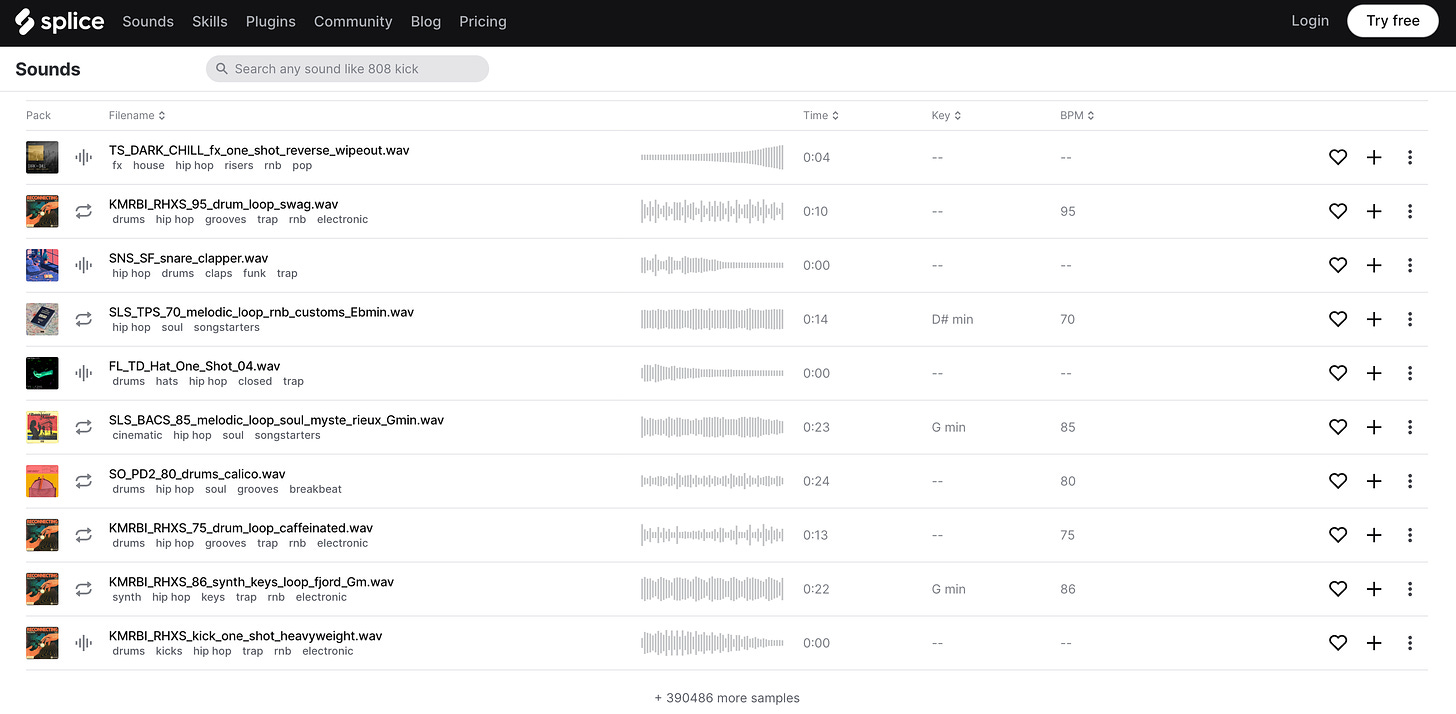
Impersonation: I’ve written about this before, but when people are creating “AI-generated songs” right now, they are usually just using AI to impersonate someone else’s voice and making the rest of the song themselves. The most famous example of this so far is the producer Ghostwriter’s viral song in which he used AI to impersonate Drake and The Weeknd. I think impersonation technology will lead to two trends in the near term. First, we will see labels go to extreme lengths to protect the vocals and likeness of their artists. Second, we will see living and dead artists license their voices to platforms for people to make songs sounding like them.
Manipulated Music
What Happened: Songs frequently blow-up on TikTok that have their audio sped-up or slowed-down. Again, using the search tool Glimpse, we see tremendous interest in these manipulated tracks.
Why It Matters: I wrote about this trend last year, and I think my exploration of it remains valid:
While the trend was first explored by DJs and producers in the early-2000s, it has come into vogue on TikTok. While artists are now releasing official versions of these speed-adjusted tracks, this is an audience-driven trend. Artists just noticed that people were ripping, manipulating, and re-uploading their tracks.
Though I think this trend will upset some artists - if they wanted their song sped up, they would have made it that way - labels are going to look for ways to capitalize on it. We’ve tried to figure this out at Audiomack. On our iOS app, you can adjust the speed and add effects to any song. This puts fans in the driver’s seat and allows artists to collect royalties without having to release additional versions of their songs.
The Blurred Line Between Fans & Creators
What Happened: It used to be hard to record a professional quality song. You had to write the song. You had to find a studio. You had pay to use it. And you had to know how to use it. Now, it’s easier and cheaper than ever. You can download some software on your computer - heck, you can download it on your phone - and have a professional quality song in a few hours. When we consider the AI-generated song trend and manipulated music trend, we see that it’s both becoming easier to make music, and it’s not always clear where the line between artist and fan is.
Why It Matters: Part of the reason TikTok has become so prominent is that every person on the app is a potential creator. The music industry seems to be headed in the same direction. We already see more songs released in a year than we did across a decade in the 20th century. That number will continue to rise as it becomes easier make new music and transform existing recordings.
The Spotify Backlash
What Happened: A few months ago, Spotify announced that they would stop paying royalties on songs that had fewer than 1,000 streams in the last year. Though I didn’t think this change was actually a bad thing, it generated a ton of backlash.
Why It Matters: For a century, the music industry was in the product business, selling your favorite music to you in various formats (e.g., vinyl, cassette, CD). Streaming - which turned this model on its head - has only been the most common way to listen to music for a few years. We will likely see platforms continue to experiment with how to pay artists because this technology is so nascent. Companies like Deezer and SoundCloud have already started to try out alternative models.
Hip-Hop Stagnation
What Happened: In the middle of 2023, Billboard speculated why there had been no hip-hop number ones: “[Though] R&B and hip-hop is up 6.3% in overall units this year compared to 2022 … it is slowly losing its dominance in terms of market share.” In short, there have been varying signs that hip-hop’s musical hegemony is ending.
Why It Matters: I think there are two ways that genres die. The first is that the genre never reaches more than a small subset of the population. The second is that the genre reaches everybody and just stops having any room to grow. Rock music is a great example of the latter. Rock music was so prevalent for so long that it not only couldn’t become more popular, but it’s defining elements were appropriated into scores of other genres. I believe we are approaching a similar situation with hip-hop.
Though hip-hop has been the dominant musical force for the last 20 to 30 years, it wasn’t as prevalent on the charts in 2023. That said hip-hop elements were still everywhere. The most popular song of the year was Morgan Wallen’s “Last Night”. Though most people call “Last Night” a country song, its lyrical flows and bass line are heavily indebted to hip-hop. In fact, Charlie Handsome - one of the songs writers and producers - frequently works with rappers.
The Rise of African Music Across the World
What Happened: According to Billboard, the sixth most popular song in the United States this year was “Calm Down” by Rema & Selena Gomez. Though Gomez is a well known American star, Rema hails from Nigeria, which makes “Calm Down” not only the biggest song by a Nigerian in the United States of all-time but also the biggest afrobeats song in the United States of all-time. Like Rema, other west African stars including Fireboy DML, Wizkid, and Burna Boy have been able to find crossover success in non-African markets.
Why It Matters: African genres, like afrobeats and amapiano, are some of the fastest growing genres in the United States. Over the next few years, we will not only see African musicians became global stars, but I suspect music from the African continent will come to replace hip-hop at the center of the musical zeitgeist.
A New One
"KOUTOUKOU" by Rémy Adan
2023 - Coupé-décalé
Hailing from Côte d'Ivoire, Rémy Adan’s music combines silky melodies with minimalist production. After utilizing that silky minimalism for almost three minutes on his latest song “KOUTOUKOU”, the composition takes an unexpected turn, playing with abrasive rhythms in a way that wrinkles up that silk. I’m hoping to hear more from Adan in the new year.
An Old One
"Mistadobalina" by Del the Funky Homosapien
1991 - Hip-Hop
Hip-hop’s death has been declared scores of times. Honestly, this happens with every genre that becomes ubiquitous. I think people were saying rock was dead within moments of its creation. Hip-hop has seen just as many death declarations. Some people who consider hip-hop dead - or on life support - think that the genre’s height was in the late-1980s or early-1990s when Ice Cube’s cousin Del the Funky Homosapien was on the come-up.
Built around a sample of The Monkees’ Peter Tork repeating the name “Mr. Bob Dabolina” in the oddball song “Zilch”, Del’s “Mistadabolina” has always made me laugh because the title is incredibly close to my father’s name, Mr. Bob Dalla Riva. The bouncy name allegedly came to Monkee Mike Nesmith when he heard it over the loudspeaker at a department store.
Want to hear the music that I make? Check out my latest EP, You Know I Can Be Dramatic
Subscribe to Can't Get Much Higher
The intersection of music and data


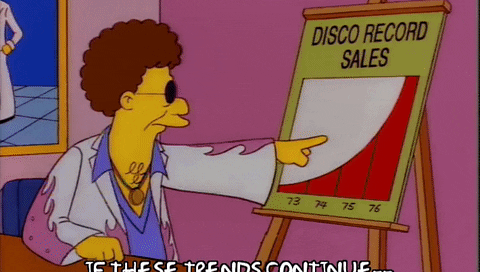



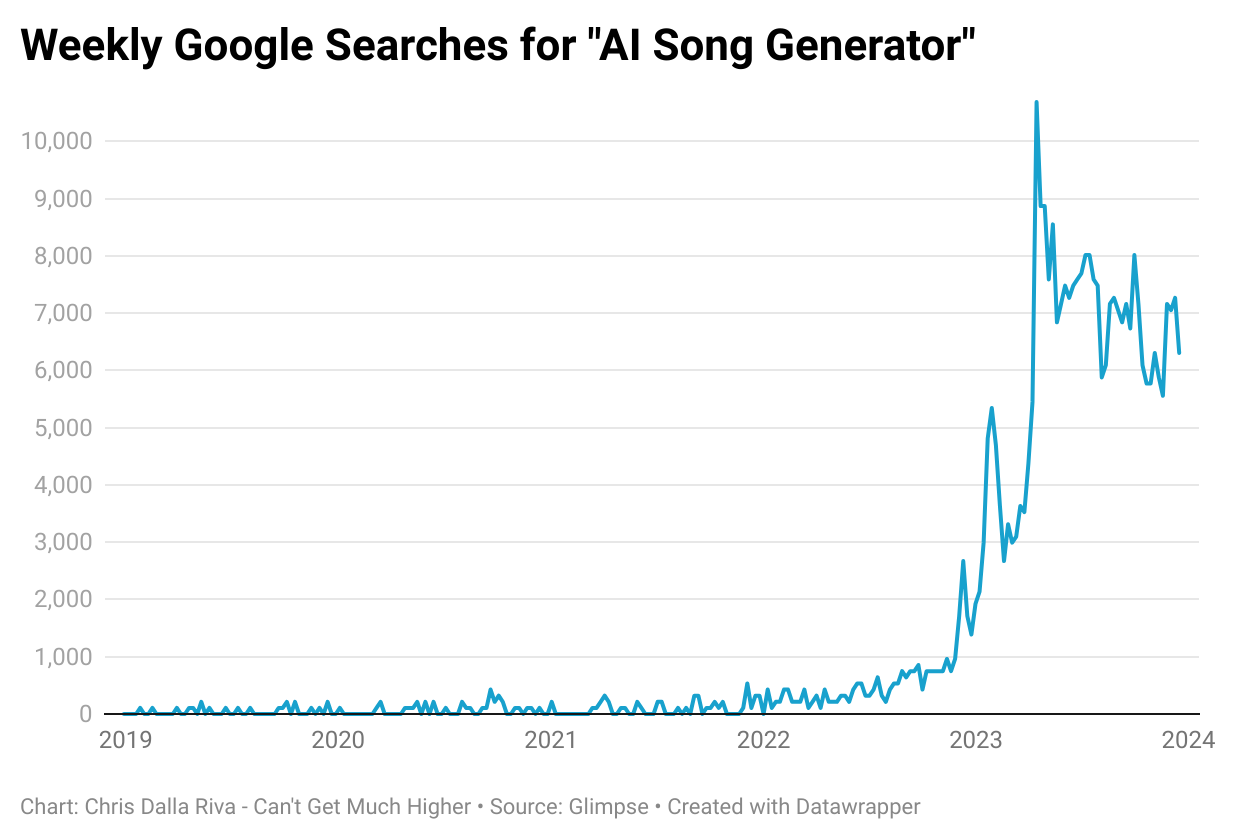
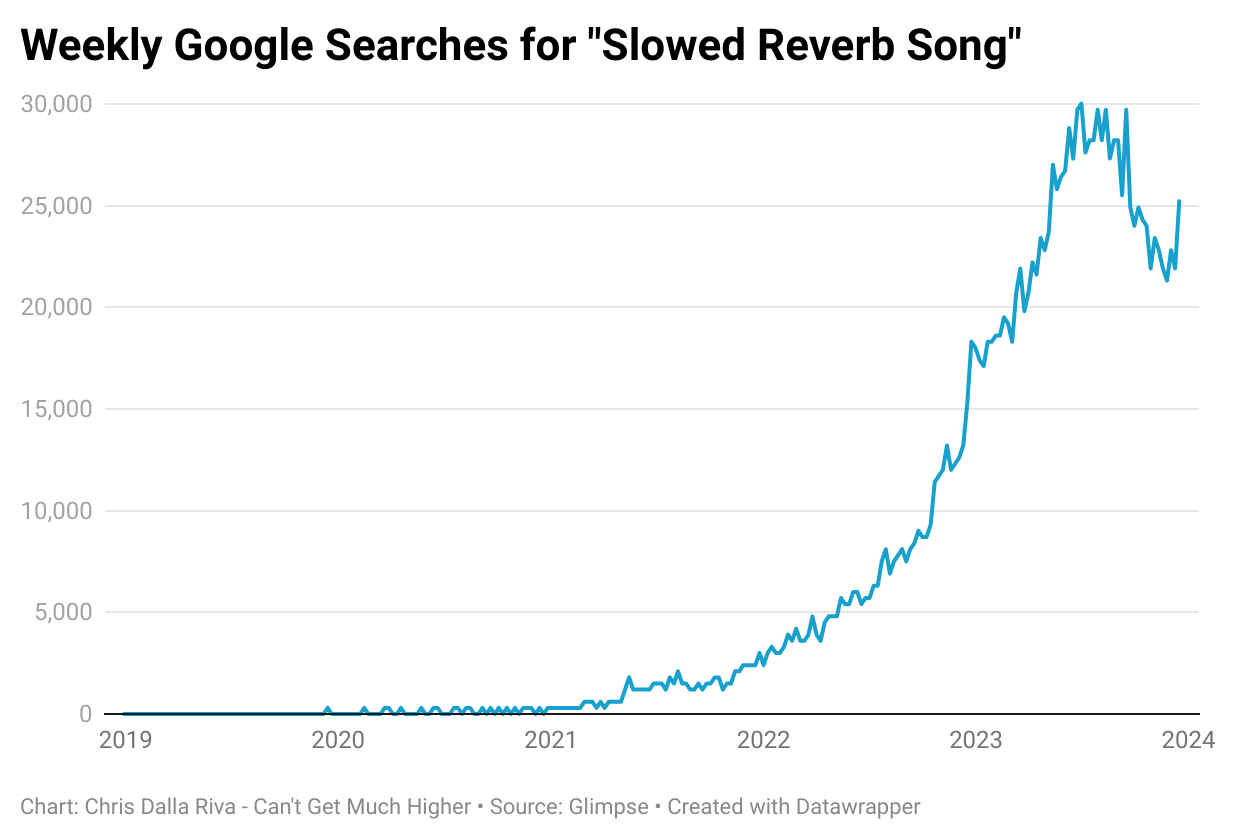
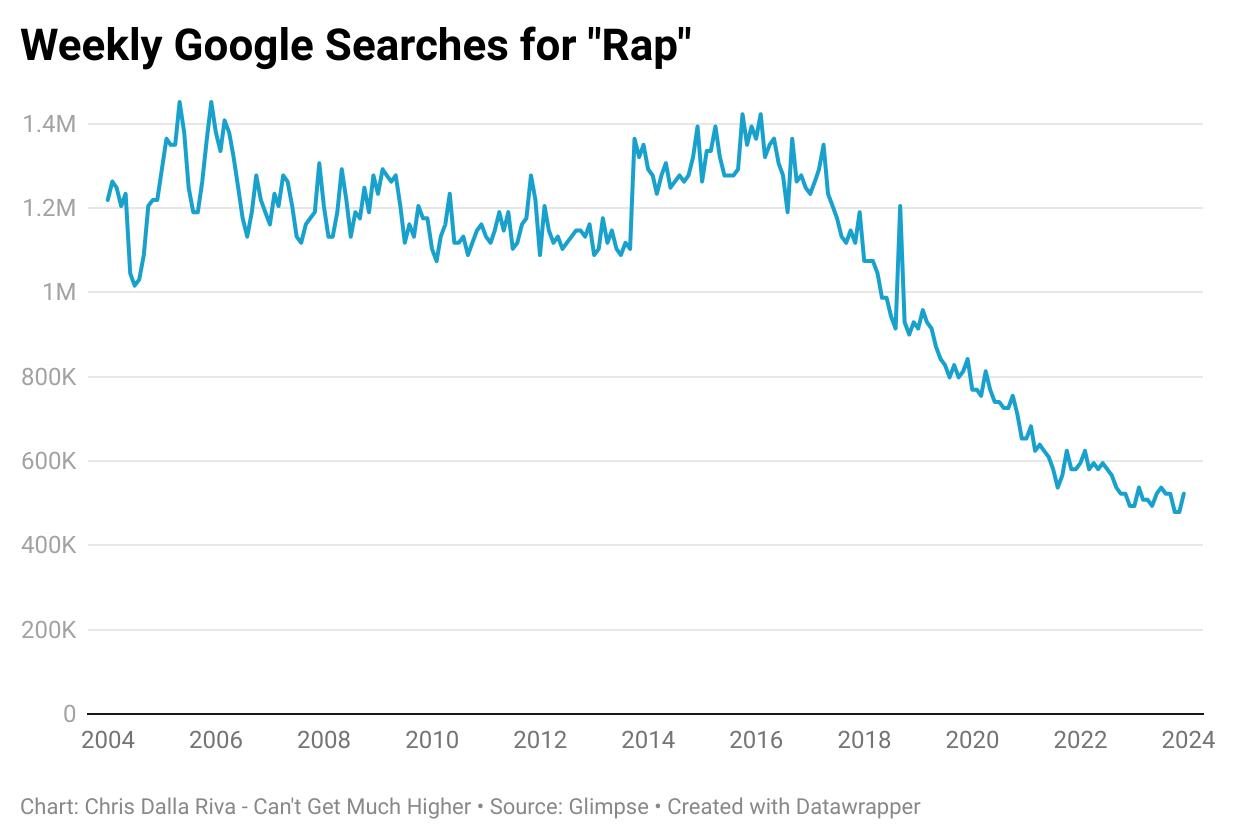






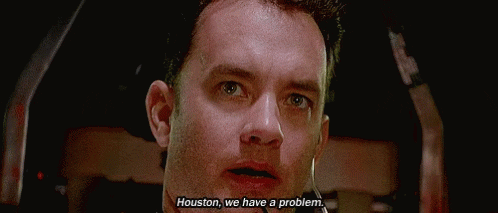

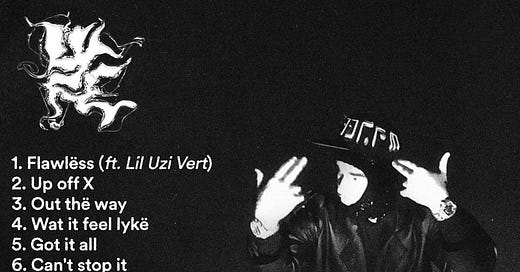



Interesting tidbit about Mistadabolina and the Monkees! I knew I knew it from somewhere else.
And interesting thoughts on African music dominating the global hip hop market. I can see that happening. I think Tyla, who has a hit right now with the song Water, is from South Africa.